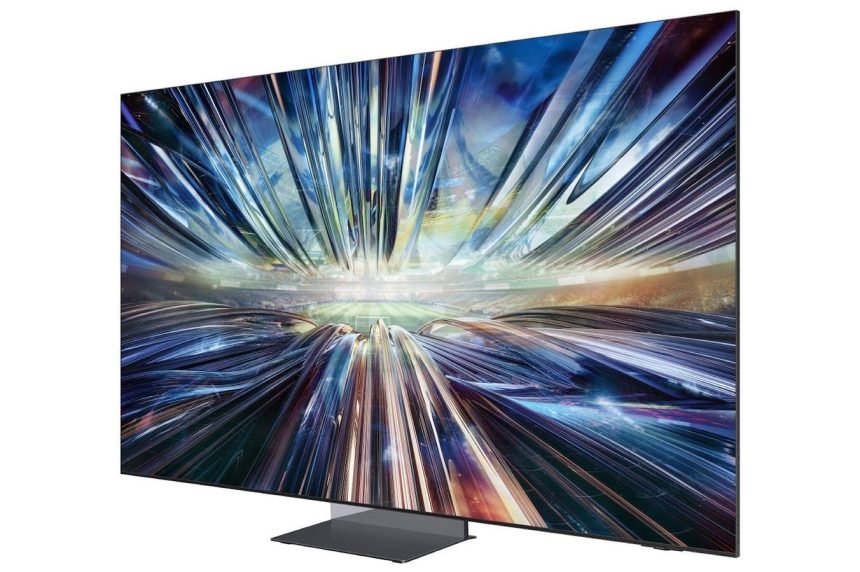Samsung, in a collaborative effort with Google, is poised to disrupt the immersive audio landscape with its groundbreaking Eclipsa Audio technology. Set to debut in Samsung’s 2025 lineup of televisions and soundbars, Eclipsa aims to challenge the dominance of established 3D audio formats like Dolby Atmos and DTS:X. Eclipsa operates on the principle of creating a three-dimensional auditory sphere around the listener, strategically placing sound effects within this space rather than limiting them to the physical location of the speakers. This method allows content creators to manipulate audio data, including location, intensity, and spatial reflections, to craft richly immersive and realistic soundscapes.
This innovative audio technology marks a significant departure from traditional audio delivery. Eclipsa leverages object-based audio principles, where individual sounds are treated as discrete objects that can be positioned precisely within a 3D space. This contrasts with channel-based audio, where sounds are assigned to specific speaker channels, limiting the sense of immersion. Eclipsa’s object-based approach allows sound designers to create a more lifelike and engaging audio experience, placing the listener at the heart of the action. Imagine a scene in a movie where a helicopter flies overhead; with Eclipsa, the sound of the helicopter would move seamlessly across the room, creating a truly enveloping experience.
Samsung’s commitment to integrating Eclipsa across its 2025 TV and soundbar range showcases its ambition to democratize this immersive audio experience. From entry-level Crystal UHD TVs to premium 4K Quantum Dot OLED and flagship Neo QLED 8K models, Eclipsa will be accessible to a wide spectrum of consumers. This broad implementation strategy indicates Samsung’s belief in Eclipsa’s potential to become the new standard for home theater audio. The inclusion of Eclipsa in even the more affordable TV models suggests a desire to make high-quality immersive audio accessible to everyone, not just those with top-of-the-line home theater systems.
However, the success of Eclipsa hinges not only on hardware integration but also on the availability of content that utilizes this new format. While specific details regarding soundbar models remain scarce, Samsung has confirmed that content creators will be able to upload videos with Eclipsa audio tracks to YouTube starting in 2025. This partnership with YouTube is a crucial first step in building an Eclipsa ecosystem. YouTube’s vast user base and accessibility offer a significant platform for introducing Eclipsa to a global audience. It allows creators, both professional and amateur, to experiment with the format and contribute to its growth. However, the adoption of Eclipsa by major film and television studios remains a critical factor in determining its long-term success.
To ensure the integrity and consistent high quality of the Eclipsa experience, Samsung and Google are collaborating with the Telecommunications Technology Association (TTA) to develop a dedicated certification program for Eclipsa-equipped devices. This initiative underscores their commitment to establishing Eclipsa as a robust and reliable audio standard. Certification will provide consumers with the assurance that Eclipsa-enabled devices meet specific performance criteria, guaranteeing a consistent and high-quality audio experience across different manufacturers and models. This standardization is crucial for building consumer confidence and fostering wider adoption of the technology.
Both Samsung and Google express strong optimism regarding Eclipsa’s transformative potential. Jim Bankoski, Vice President of Engineering at Google Chrome, envisions Eclipsa reshaping the way we perceive and interact with sound. Similarly, Taeyong Son, Executive Vice President and Head of R&D at Samsung Electronics’ Visual Display Business, views Eclipsa as a pivotal innovation that will redefine the future of home entertainment. Their shared enthusiasm underscores the significance of this technology and its potential to revolutionize the audio landscape. The collaboration between Samsung and Google combines Samsung’s expertise in consumer electronics and display technology with Google’s software prowess and vast online reach, creating a powerful synergy that could propel Eclipsa into the mainstream. The success of Eclipsa will ultimately depend on the combined efforts of hardware manufacturers, content creators, and industry bodies working together to build a thriving ecosystem around this promising new technology.



